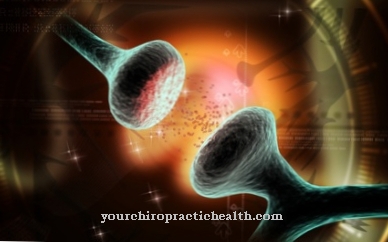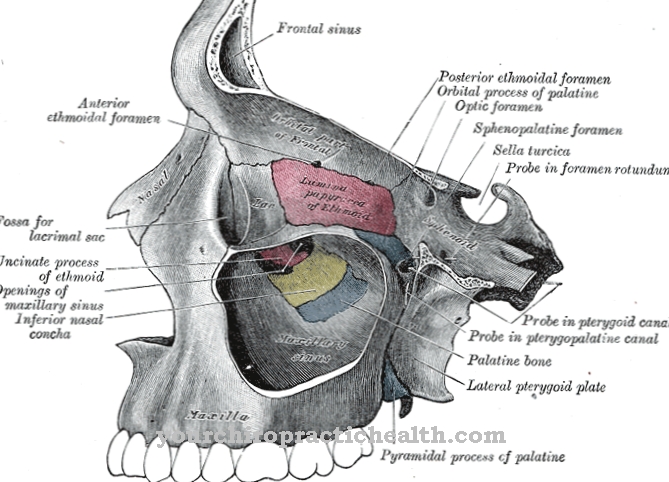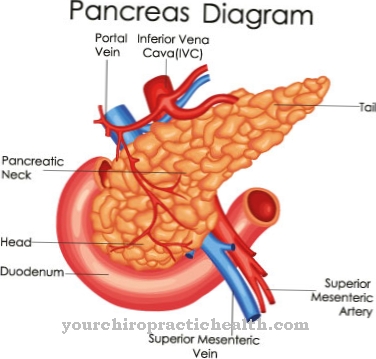Medical psychology understands by intuition mental inputs or thoughts from the subconscious that do not seem to be subject to the rational mind. These kinds of ideas, gut feelings or flashes of thought cannot be explained rationally. It is therefore assumed today that intuitive inputs are the language of the subconscious.
What is the intuition?

The ability to allow and use intuition varies greatly from person to person. Due to negative beliefs, many people have forgotten how to think intuitively and to listen to intuition as the language and expression of the unconscious and then to act accordingly.
By definition, intuition is always to the point, clear and simple. There is nothing mysterious, nothing paranormal or magical about intuition. The power of the subconscious is enormous, because it not only determines the life functions, but also partly also the conscious actions of a person without him thinking about it any further.
The intuition comes as a gut feeling directly from the subconscious, it is a direct impulse, the origin or creation of which cannot be justified rationally, i.e. with the mind. Albert Einstein therefore also called intuition the language of the soul. From a psychological point of view, it seems to be beneficial for a person's development to listen to and trust one's intuition. But that is exactly what most people find difficult.
Function & task
Of course, an intuitive impulse always comes about on the basis of a person's knowledge base. But according to today's medical-psychological knowledge, it is much more than empirical knowledge. Intuition is able to compose all possible fantasies and impressions into a picture of reality in the shortest possible time. The conscious listening to such inner inspirations can be very helpful and useful for the development of a person on his life path.
The root of the term 'intuition' is Latin, 'intueri', and can be translated as 'recognize', 'look at' or 'look at'. Intuition therefore ultimately also means self-knowledge about one's own existence, about the potential of the possibilities in one's own life. The benefit for people to listen to their own intuition is primarily that it is actually a sensory perception. This means that intuition can be perceived on one or more levels at the same time.
Intuitive inspirations can be perceived through all five senses, taste, smell, feel, hear and see. Intuition thus offers the individual the opportunity to experience and perceive the outer and inner world more deeply and on a different level.
The well-known psychologist C.G. Jung also regarded intuition as a fundamental human function. He was already convinced at the time that intuition explores the unknown and, above all, gives an idea of possibilities that were previously not visible in a person's objective life.If a person follows his inspiration, i.e. his intuition, then he can make use of these inclinations and wishes hidden deep in his soul by making them a reality.
For C.G. Jung is intuition a cognitive function, indeed a kind of psychic organ, which has the enormous potential to grasp the truth of an individual in its entirety. From a psychological point of view, intuition does not come from individual parts to the whole, but directly grasps the whole.
You can find your medication here
➔ Medicines against memory disorders and forgetfulnessIllnesses & ailments
In vocabulary there are many synonyms for the psychological term intuition due to its importance and omnipresence. Whenever, for example, from sixth sense, of a right nose, of a Flash of thought, from one inner inspiration, of a hunch, of Gut feeling or instinct what is spoken is ultimately meant nothing other than intuition.
This intuitive perception is an innate, natural ability of every human being. It actually permeates all areas of life and yet many people do not dare to listen to their intuition consistently. The ability to intuition is therefore often buried, lying idle. However, it can be effectively trained. Every training of the intuitive skills aims at the individual perception of one's own feelings and impulses. Various psychological methods are available for this.
The human mind always clings to exact planning or control, but those who follow their intuition expand their own scope for action considerably. Because intuition is the basis for creativity and further development. Those who follow the path of their own intuition will notice that new experiences based on intuition leave a very positive impression on their own well-being.
With the help of so-called somatic markers, positive feedback from the subconscious after intuitive decisions can point the way forward for the future. This means that intuition is expressed directly in physically detectable reactions. The somatic markers are always vegetative.
As a starting point that someone is on the right path by allowing intuitive feelings to occur, vegetative symptoms such as sweaty hands, muscle twitching, increased heart rate or increased blood pressure can occur. An inner joyful excitement is also considered a positive starting point for intuition.
In contrast, muscular tension can be an expression of a negative intuition that something is out of balance or wrong.
















.jpg)
.jpg)



.jpg)






